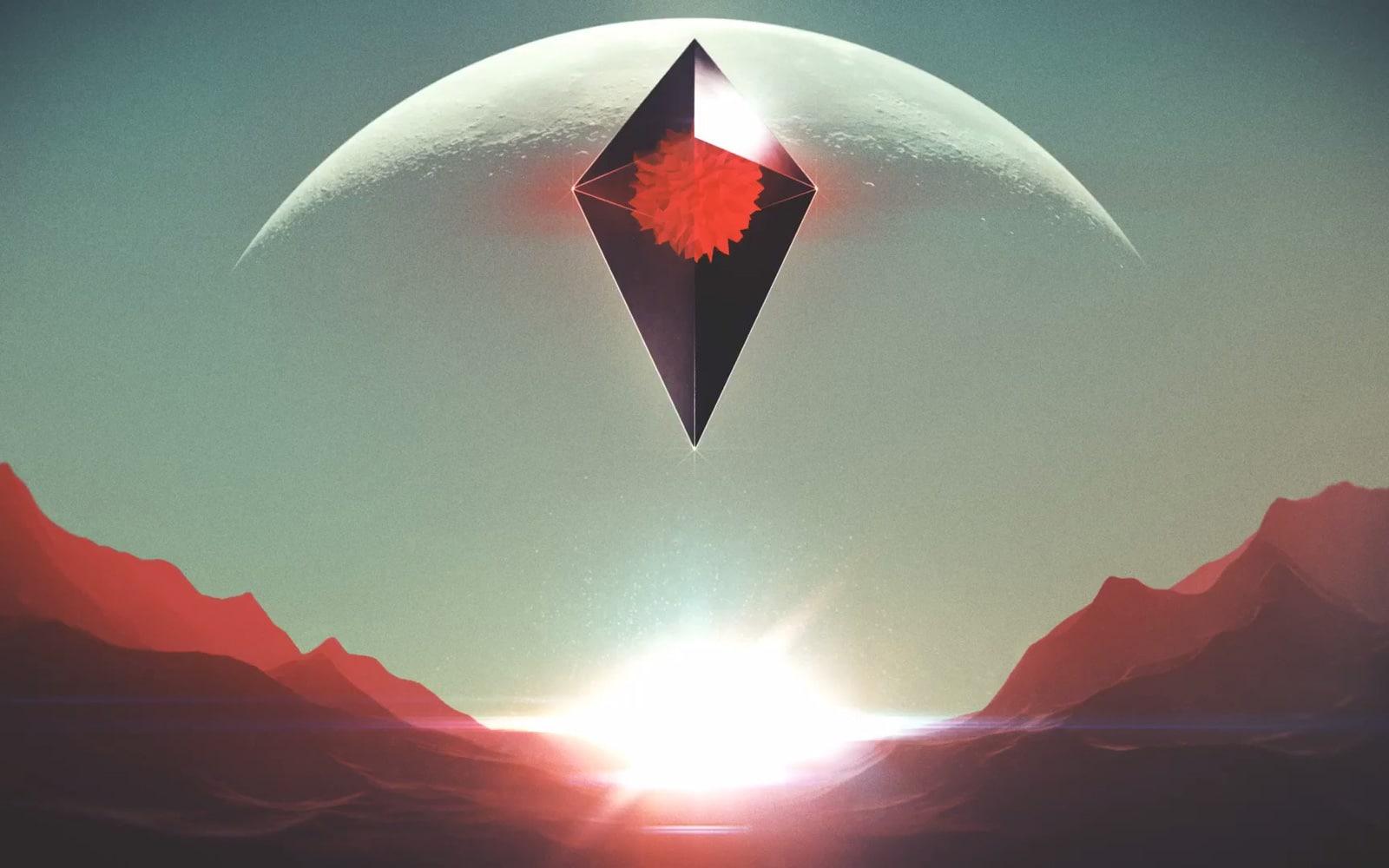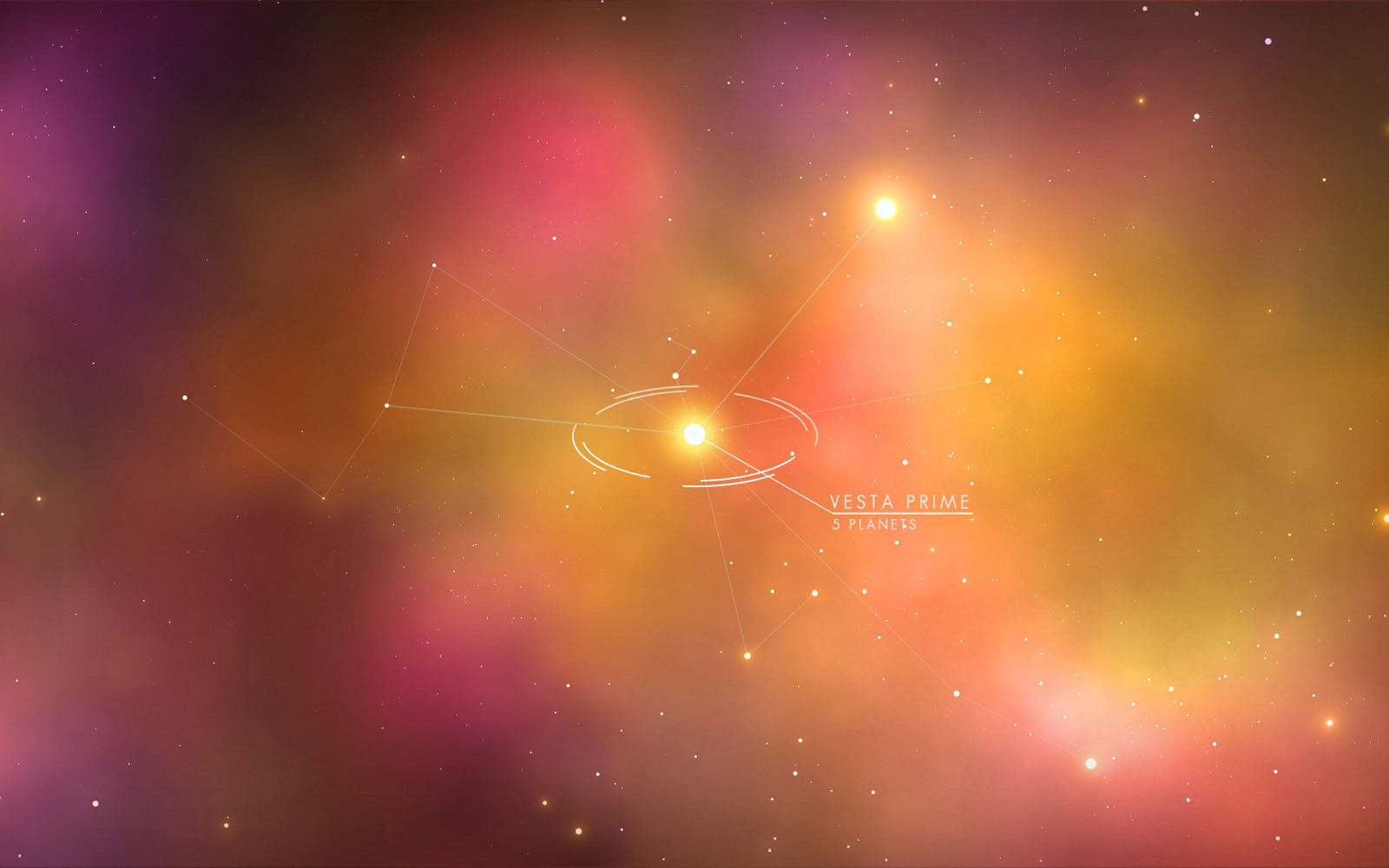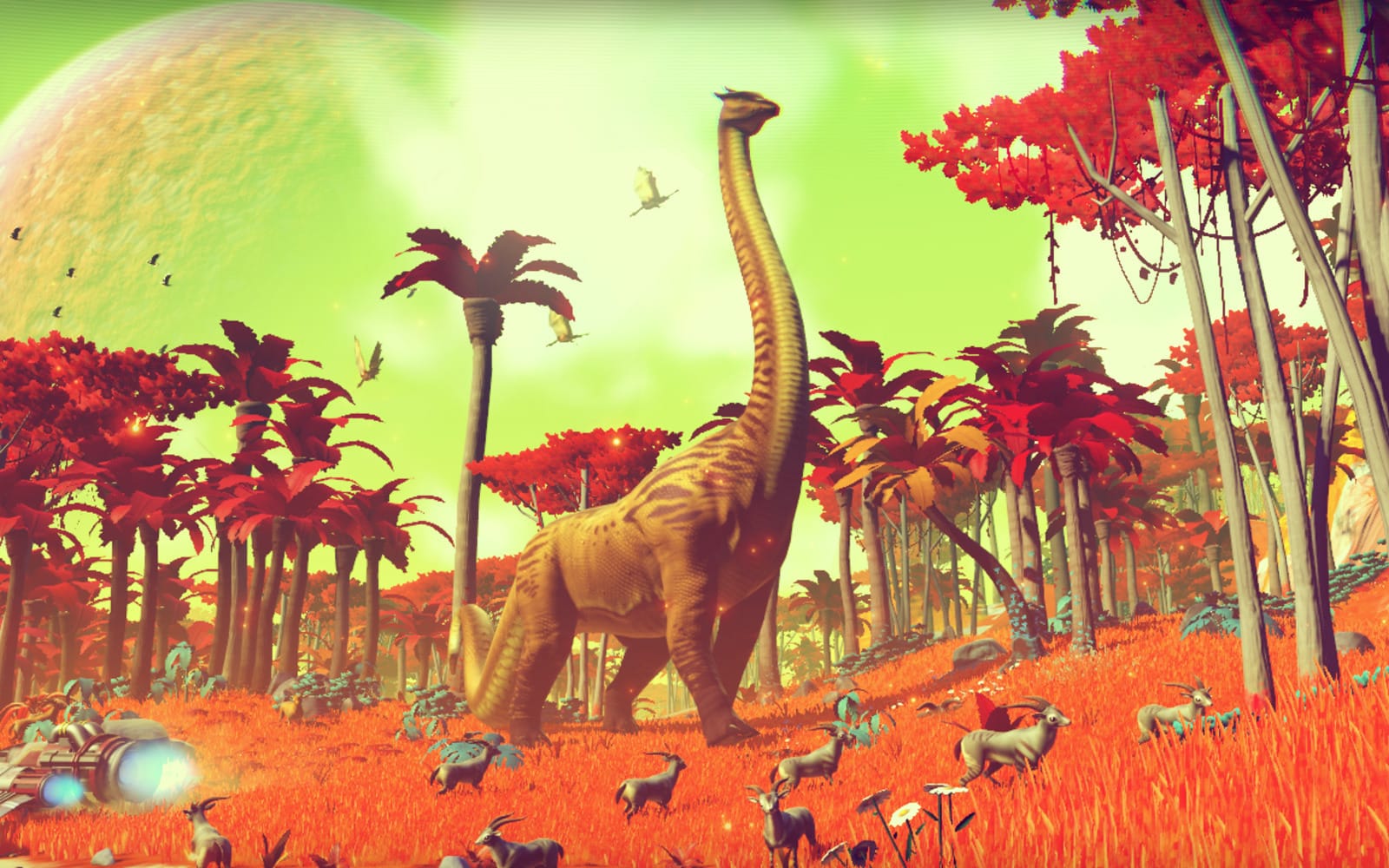No Man’s Sky’s Universe Is Beautiful, Isolating, and Tragic

Few video games in recent memory have arrived with as much anticipation as Hello Games’ No Man’s Sky. Billed as a “science-fiction game set in an infinite procedurally generated galaxy,” the game promised a very different experience from most space-set video games. Rather than battle alien hordes and/or attempt to conquer the galaxy, your time in No Man’s Sky is spent exploring the galaxy and its 18 quintillion planets, each of which contain unique and colorful ecosystems.
No game can live up to the amount of hype that surrounded No Man’s Sky for months prior to its release, and many have criticized the game for delivering an experience that was less than promised. (You apparently spend much of your time walking around, getting supplies, and building/crafting new items to enhance your ship and/or trade with others.) What’s more, due to the game’s emphasis on open-ended exploration, No Man’s Sky has a threadbare storyline that involves an ancient alien civilization and journeying to the center of the galaxy.

Still, many have praised the game’s ambitious nature and technical achievements, with some pointing out that their favorite aspect of the game is the sense of isolation it creates. (It’s possible to never encounter another player, which stands in stark contrast to the glut of multi-player games out there.) As Wired’s Daniel Starkey puts it, “the power of No Man’s Sky is making you feel insignificant.” He writes:
But then that gnawing realization comes back: No one will ever see my worlds. No one, besides myself, will know what I saw and who I was in this facsimile. It reminds me, consistently, of my own arrogance, my presumed meaning. No Man’s Sky says that we are all conceited for thinking that our lives have purpose. No Man’s Sky is predicated on the idea that there is poetry in the knowledge that we are as lonely and as small in its computer-generated space as we are here in reality.
I step away from the game feeling insignificant, but I take serenity in that. No matter my personal failings, no matter what kind of dark thoughts I hide in me, I don’t need to be the hero of the universe. Instead, I can enjoy life for its brief moments of joy. I refuse to take for granted the intimacy I share with loved ones, or the allure of our own world.
For io9’s Evan Narcisse, “[the game’s] true triumph is maintaining a feeling of wonder and aloofness… This universe doesn’t care how much of it you see or understand. It will exist without you.” Later, he writes:
That classic “Arena” episode of Star Trek ends with Kirk and the Enterprise crew lightyears away from the planet where the life-or-death battle happened. The prize that Kirk won was an affirmation of why he and his fellow Federation members were boldly going in the first place. They’re all answering some ineffable call to the unknown and doing the best with what they encounter. No Man’s Sky makes me feel the same way. For once, I don’t want to be the savior-master of the universe in a science-fiction video game. I just want to breeze through its vistas, leaving marks that bear witness to my journey.
This sense of isolation and insignificance is intentional on the part of the game’s lead developer, Sean Murray. In a lengthy and fascinating interview with The Atlantic, Murray describes a formative experience he had as a child living in the Australian outback, one that influenced the design of No Man’s Sky:
My parents managed this big ranch of one and a quarter million acres. It had a gold mine. It had seven airstrips. You don’t get there by road — you have to fly in. We were very much on our own, and we went out every morning to check that the machines that were keeping us alive were still working. It was the closest thing to the surface of Mars. We were alone for hundreds and hundreds of miles. There was just this incredible feeling — knowing that you’re this little dot in this massive landscape.
I should mention that I haven’t played a single second of No Man’s Sky, nor will I in the immediate future. Not because I don’t want to, but rather, due to the lack of time and resources (like a modern gaming system). But I have been following the game’s development and coverage with interest for well over a year. Even back then, I had a feeling that No Man’s Sky could offer a unique experience for the video game medium. And one of the first things I latched on to was that it would surely have this sense of isolation about it, something that struck me as a (potentially) refreshing change of pace in a medium dominated by ultra-realistic graphics and overly stimulating activities.

As I read about No Man’s Sky in the weeks leading up to its release, I was reminded of the sublime gaming experience I had while playing the original Halo. While I tried to evade enemies, find supplies, and complete my missions, I was struck by how alone I felt while exploring the game’s vast levels.
Although it’s primarily an action-packed first person shooter par excellence, I appreciated Halo’s quieter, lonelier moments, moments that made me consider the futility of my mission in a more poignant way than would otherwise be possible in an insane firefight. Given the medium’s tendency towards bright, flashy stimulation, I’ve since come to prefer video games that offer such introspective moments (with Hyper Light Drifter being a more recent example).
As Christianity Today’s C.T. Casberg points out, however, the sense of isolation and insignificance created by No Man’s Sky can also be a liability as it speaks to our current cultural climate, our view of science, and our imagined place in the universe.
No Man’s Sky also reflects the spirit of our age. It is a portrait of a universe not endowed with any inherent sense of meaning or purpose. The path through the stars in No Man’s Sky leads not to the throne of God, as in Dante’s vision, but only to more stars. Algorithms endlessly generate new planets with new flora and fauna, so one can never “conquer” the universe. It also frustrates the modern confidence that science and raw human determination can learn everything there is to know to about what lies beyond our atmosphere. The universe in No Man’s Sky is indifferent to our attempts to know it. Yet it is beautiful, filled with more light and color than there is in our own universe. There is no end to the game’s beauty, most of which will never, ever be seen by players — the cosmos that Hello Games created is beautiful in itself, without needing a player to come around and think it so. At the end of the day, the endless beauty that No Man’s Sky creates is just… there.
Therein lies both the triumph and tragedy of the game, and, ultimately, its truth. The mathematics behind the game create infinite beauty, but endless as it is, that beauty can never fill the missing piece of the human spirit left by our disenchantment.
Casberg’s essay becomes even more pointed once you know how the game ends. I won’t spoil anything — if you’d like, here’s an interesting analysis of philosophical ramifications implied in the game’s ending — but if the aforementioned analysis is to be believed, then No Man’s Sky presents a vision of reality that is ultimately even more tragic and troubling than Casberg describes.